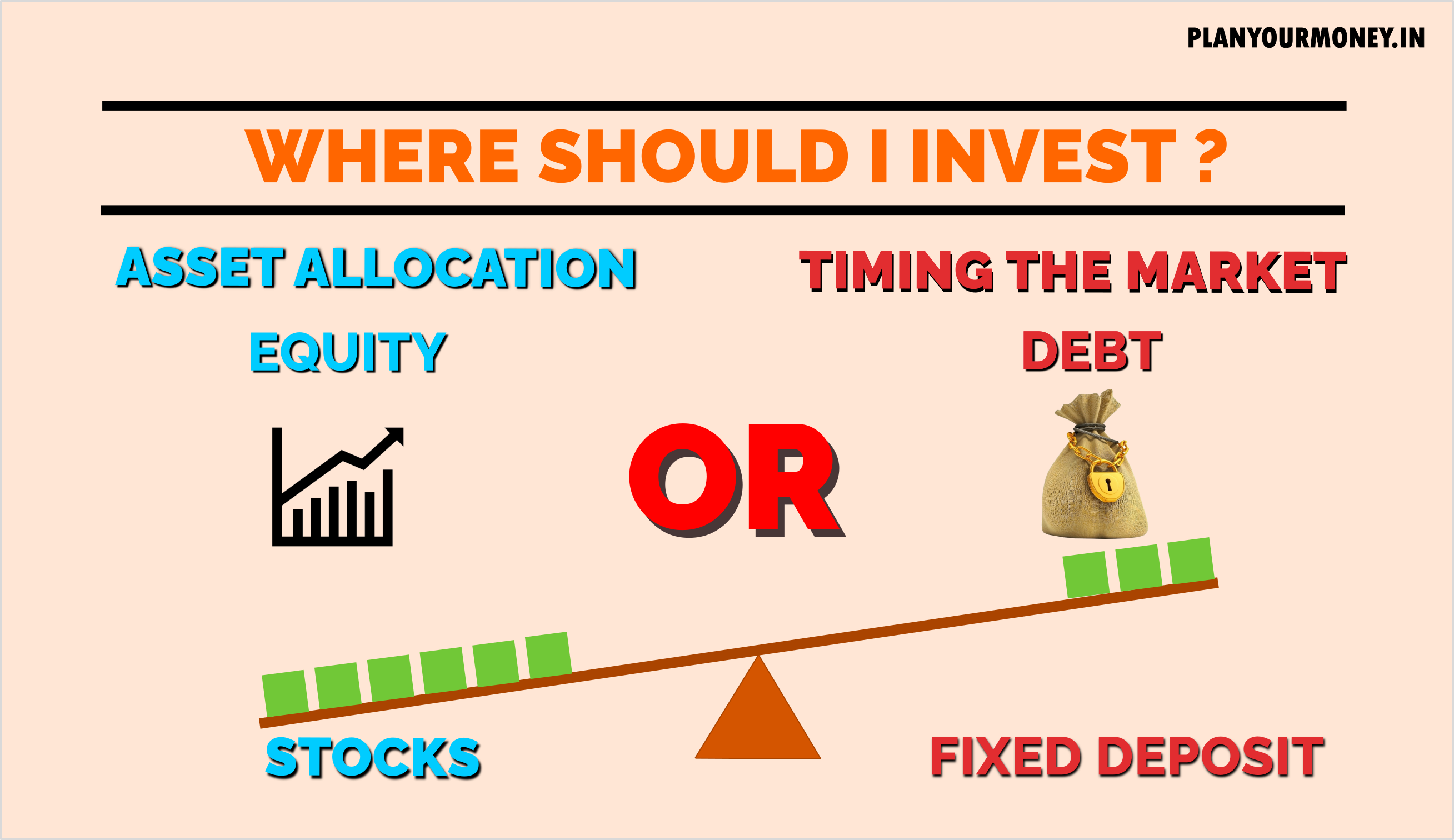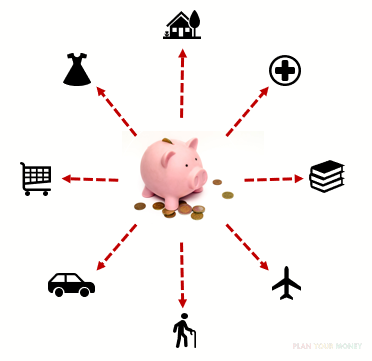Where should I invest ?
Is this a good time to invest in equity !

One of the common questions that investors ask me - where should I invest my money ? Fixed Deposit is giving a paltry return of 5 % . Is there any other investment avenue where I could get better return than this ? If you are facing a similar dilemma in this time and age, you are not alone. The answer is simple and it requires a process to be followed.
Guidelines
As with any goal, things become easier when we have a guideline in place which helps us direct our path towards our objective. Similarly in investment, we have a three-step process which helps any investor decide his course.
What is your investment objective ?
You need to understand that money by itself has no value unless we associate it with an object / objective . You need to ask yourself this question , what do I need this money for ?
- Do you need this money for retirement ?
- Do I need this money to buy a car ?
- Do I need money to buy a house ?
What is your horizon of investment ?
The thumb rule is, if your horizon is less than 5 years, you should invest in debt. If your horizon is more than 5 years, you should invest in equity as equity takes more than 5 years to give a decent return on your investment. Therefore your horizon of investment is an important factor in deciding where the money goes.
What is your risk appetite ?
In case, you worry, on any fall in stock market, maybe equity is not for you. If you understand and are okay with the ups and downs of stock market, perhaps you can invest in the stock market. Your risk tolerance plays an important role in deciding where the money should be put ?
How to diversify your risk ?
Instead of investing in a single stock, you can invest in a diversified portfolio like mutual fund.
- Large caps are the top 100 stocks by market capitalization and they are less riskier.
- Mid-caps are more volatile than large caps and therefore more riskier.
- Small caps are very volatile and even more riskier than mid-cap.
- Investing in a single stock is riskier than all of the above as your entire risk depends on that stock performing well
Economy updates
- Despite all the efforts taken by the Central Government, State Government, health machinery - COVID is yet to go away
- There are newer variants of COVID coming up every season
- RBI is forced to keep the interest rates low as it is required to revive business and it is important for consumption to start
- In the next 12 - 24 months, there is an expectation of small increase in interest rate
- CPI inflation is at 6.26% in June (vs 4.29% in April 21), but RBI will not be stepping in any time soon to contain this
- Even global banks will continue to maintain loose monetary policy
- Petrol Price in Bangalore is 105.25 (as of 2nd August 2021) and don’t see that coming down either
- RBI in its latest policy has revised inflation from 5.1% to 5.7%
- If there is a third wave, GDP growth could reduce from 9.5% to 7.0 %
- Irreversible changes (damages) have happened in terms of business, in our way of life, in our life
With all of these, interest rates will continue to linger between 5 to 5.5% for the foreseeable future, unless the threat from COVID reduces and we are able to lead a new normal life that doesn’t restrict movement. Therefore we see a good number of new entrants to the stock market in terms of end clients who are ready to venture and see gold at the end of the rainbow. People have been borrowing funds and investing in stocks as cost of borrowing has reduced significantly. Direction of stock market is driven mainly by FII and DII (mutual funds & others). As soon as there is direction change in US Fed rates, you would see a pull-out and therefore huge fall in the stock market prices. At the moment, they have signalled not much change till 2023 (revised from 2024).
What should you do ?
- Follow the three-step process ,
- Assess your investment objective
- Identify your investment horizon
- Evaluate your risk appettite
- If you follow Goal Planning, things become a lot simpler
- Periodically track progress of your investments towards your goals
- Identify whether your investments are performing at the top quartile amongst its peers. If it is consistently performing poorly, you need to revaluate your investments

